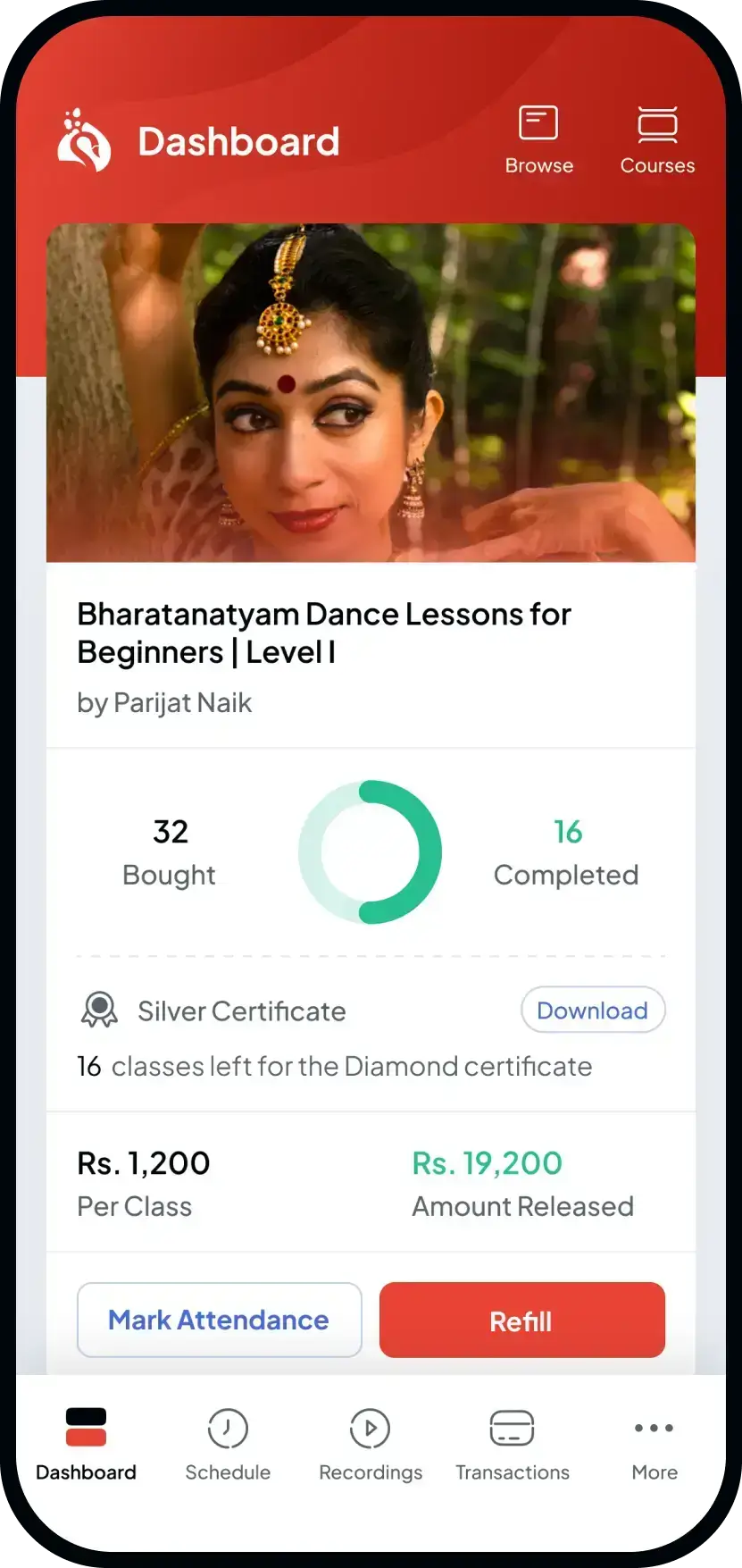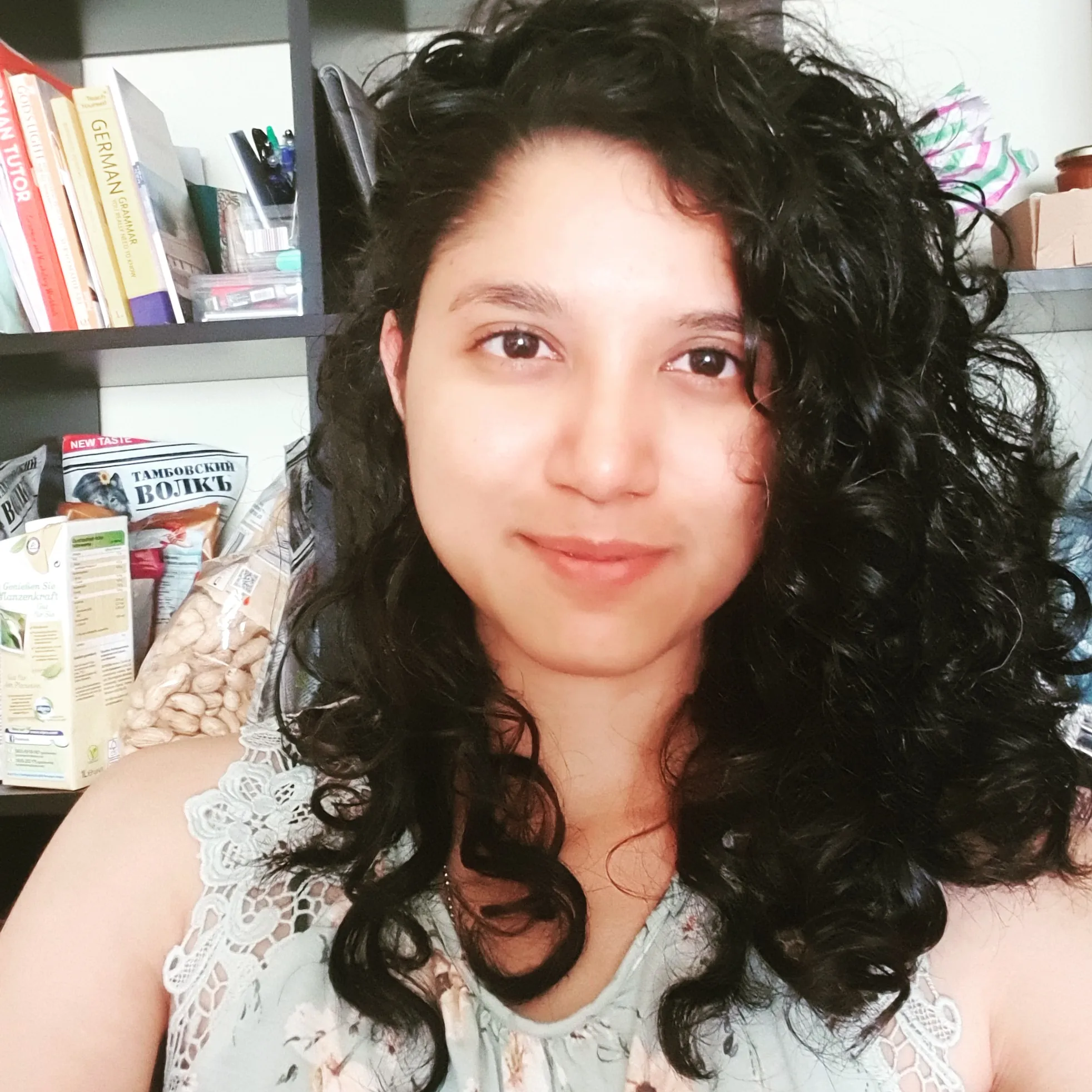Why people love ipassio?
World-class masters as teachers
Personalized & Interactive 1-on-1 classes
Course studio that amplifies learning
Access to the global creative community
Pay as you go - 2 classes at a time
World-class masters as teachers
Personalized & Interactive 1-on-1 classes
Show more
Explore Online Sufi Music Courses

Our Happy Learners

Real Progress, Real Impact
Let’s celebrate passion learning
About Online Sufi Music Lessons
Are you ready to dive into the enchanting world of Sufi music? Imagine immersing yourself in the poetic verses of legendary Sufi poets like Rumi and Omar Khayyam, whose spiritual journeys infused their works with a magical essence. At its heart, Sufi music is about fostering a deep love for the Creator and establishing a spiritual connection that transcends the ordinary.
As a beginner, understanding the essence of Qawwali is essential. It’s not just about the music; it’s about grasping the teachings of Sufism and how to express them through song. Qawwali serves as a beautiful medium to share these profound teachings with the world, allowing you to connect with a rich cultural heritage.
Once you delve into the spiritual background of Sufi music, you’ll explore various ragas, including Yaman, Bhairav, Tori, Poori, and many others. Many believe that practicing Qawwali is one of the most powerful ways to connect with the divine. However, mastering this art form on your own can be challenging. That’s where having a mentor comes in—it can make all the difference in your understanding and appreciation of Qawwali.
What to expect in your online sufi music classes? Your journey will begin with an introduction to the history and significance of the Qawwali art form and Sufism. This foundational knowledge will empower you to express your devotion in new and creative ways. Most of your lessons will focus on vocal training, where you’ll receive one-on-one attention to develop your voice culture effectively.
Slowly, you will begin to explore traditional Sufiana kalams, featuring works from ancient, medieval, and modern poets. You’ll learn the correct pronunciation and receive guidance on the notes of each kalam, ensuring you become proficient in rhythm as well. Our teachers are fluent in Urdu, allowing you to navigate the intricate nuances of the language with ease.
By the end of your beginner course, you’ll be ready to perform Sufi vocal compositions, showcasing your newfound skills and deepened understanding of this beautiful art form.
Gradually, in the subsequent level such as intermediate, advanced and professional you will explore the deeper realms of musicality and spirituality in Sufi songs.
What is so unique about ipassio teachers? At ipassio, we pride ourselves on connecting you with teachers who possess a profound knowledge of Islamic mysticism and Sufi music. Many of our instructors are seasoned Sufi poets with decades of experience in both singing and composing. They will listen to your voice and craft customized lesson plans tailored to your unique skills and knowledge level.
Our Sufi teachers are dedicated to ensuring that you not only learn the technical aspects of singing but also grasp the rich history behind the styles. You’ll gain insights into voice culture, singing techniques, and even perform songs that resonate with your spirit. Having learned music from a young age, our teachers bring unparalleled expertise in spiritual singing, understanding the challenges that students face and guiding you at a comfortable pace.
With ipassio, you can enjoy the convenience of Qawwali classes from the comfort of your own home. Through engaging online video conferencing, you’ll learn directly from your Sufi teacher, making the experience both personal and accessible.
If you’ve ever felt a calling to explore the depths of Sufi music, now is the perfect time to start. With personalized lessons and expert guidance from passionate instructors, you’ll find yourself on a rewarding path of musical and spiritual discovery. Join us at ipassio and let the magic of Sufi music transform your life!
Major cities our students come from :
United States of America : New York, Los Angeles, Fremont, San Jose, Santa Clara, Chicago, Houston, Philadelphia, Phoenix, Dallas, Austin, Denver, Seattle, Detroit, Washington, Boston, Memphis, Nashville, Portland, Las Vegas, Sacramento, Colorado Springs, New Orleans
United Kingdom : London, Birmingham, Leicester, Slough, Leeds, Manchester, Glasgow, Liverpool
India : Bengaluru, Pune, Mumbai, Kolkata, Delhi, Patna, Hyderabad, Chennai, Jaipur
Sufi music is one of the most revered musical genres. It is primarily a devotional musical tradition that has a transcendental effect on the performer as well as the listener. Hence, learning Sufi music is certainly not the same as other musical genres. The teachers have to evaluate the student’s potential and come up with an appropriate curriculum to make the learning process easy and enjoyable.
Qawwali and other forms of Sufi music are based on various ragas such as Yaman, Bhairavi, Tori, Bilawal, Bhairavi, etc. Students who have a strong foundation in classical music will find it easier to grasp the elements of Sufi music. Having said that, students with no prior training in classical music can also apply. Because the beginner’s courses are designed to help students without any musical background to get initiated into the learning process and techniques of Sufi music.
Our Sufi music classes are tailored to each student's individual goals, skill level, and learning style. During an initial consultation, we assess your experience, preferences, and objectives. Based on this, we create a personalized curriculum that includes class selections and modifications to ensure you receive the most effective training for your development. Your program evolves as you progress.
We offer a range of Sufi music styles, including Qawwali, ghazals, and kafi. Our teachers are well-versed in the works of renowned Sufi poets like Rumi, Hafiz, Bulleh Shah, Amir Khusrow, and Khwaja Ghulam Farid. We can provide instruction in various ragas like Yaman, Bhairav, Tori, and Poori.
It is advisable to opt for a course that offers a customized curriculum and undivided attention of the teacher. Look for live individual classes where you can get the class recording and provision to reach out to the teachers whenever you need. Live classes allow for real-time interaction with your teacher, enabling immediate feedback and personalized adjustments. This dynamic setting fosters a deeper connection and engagement, allowing you to ask questions and receive tailored guidance. Pre-recorded sessions offer flexibility but lack the personal touch of live classes.
There is no straight answer to this question. It depends on your skill level at which you start and also your commitment and dedication to reach the proficiency level. We advise you to follow the advise of your teacher and be consistent in attending the classes. Also follow the self practice regime as advised by your teacher. Your teacher will assess your progress from time to time and keep changing your lesson plan accordingly if they feel it appropriate.
Additional Resources
How ipassio works?

Pick your passion
Ranging from music to creative arts, pick what you love!

Interact with an expert
Connect with your teacher over a free 1-on-1 video call to discuss your learning goals.

Set session schedules
Get session schedule matching your timezone

Pay as you go
2 classes at a time, with no long-term commitments.
Start with a free meeting now!
Pick a Course

Student
Teacher
Download our app and get going with your passion.
Get easy access to the pool of world-class educators, enthusiastic learners and everything exciting!
- Explore hundreds of courses from 400+ teachers
- Enroll easily into the course of your choice
- Mark attendance for every class you have completed
- Buy and refill classes with ease
- Schedule classes as per your availability
- Teachers can easily withdraw their fees














